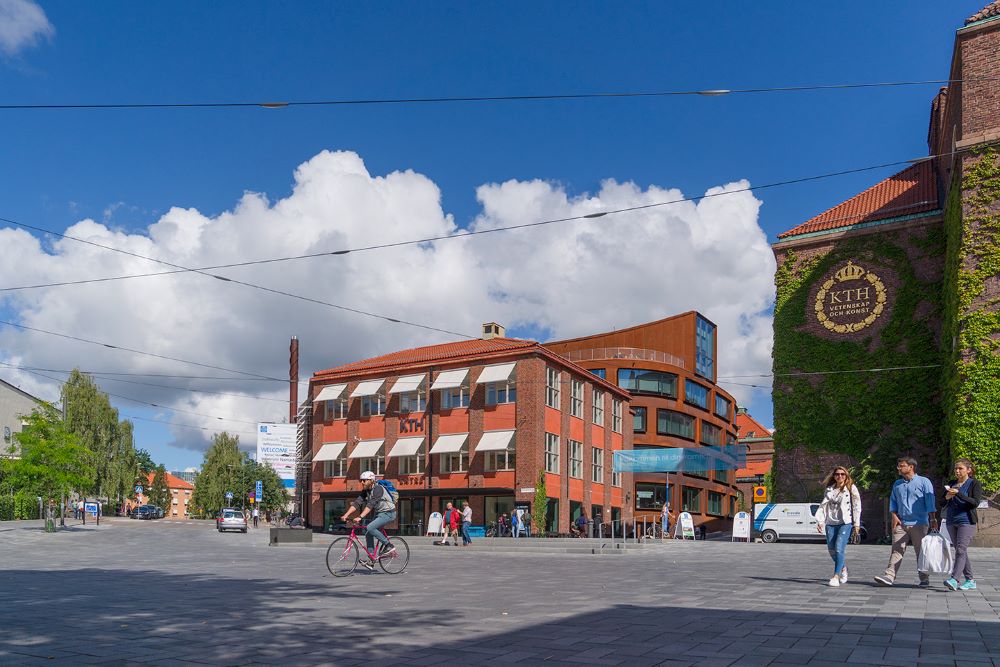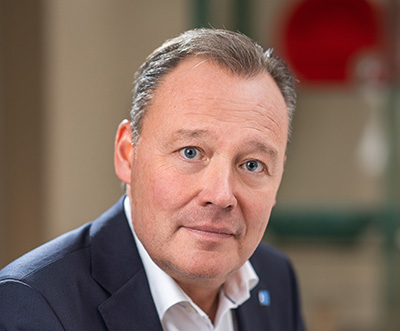New steps for collaboration after campus relocation

From initiatives in learning centres in the Stockholm region to new types of collaboration have emerged following the relocation of KTH's campuses in Kista and Södertälje.
"The high number of applications for autumn entry is definitely a sign that we are on the right track, particularly with regard to our new foundation year programmes at municipal learning centres," says Mikael Lindström, KTH's Deputy President who is spearheading the initiative to renew collaborations in these areas.
Following the decision to relocate the campus in November 2023, a timetable was drawn up for relocating operations and renewing and developing partnerships in Kista and Södertälje. A group has been working hard to explore ways to further develop the collaborations and ensure their quality, even though KTH's operations on each campus will not continue. Collaboration has been pursued in both research and education with the surrounding community at large, as well as within the framework of KTH's strategic partnerships in Kista and Södertälje. This work will be completed by the end of next year.
"The strategic partnerships are key. We continuously work together to find new opportunities and development initiatives. In research, we can see that complex challenges require complex collaborative solutions, and we can contribute to these when KTH as a whole can be utilised effectively,” Lindström says.
Foundation programme
In our collaboration with Scania in Södertälje, several steps have been taken, for example in production technology.
'"Within the partnership, we are working systematically to maintain continuity on the production side, which will be most affected by the move. We are also using the structure to develop research and educational collaborations in all areas of KTH.' 'We also have many industrial PhD students from Scania, and the academic quality is extremely high. Our collaboration is based on so much more than just a building," says Annika Stensson Trigell, Professor and Partnership Director for Scania.

"We are also seeing positive effects in terms of education," Lindström says, giving the sharp increase in applications to the Bachelor of Engineering programme in production technology as an example, after the programme was moved to KTH's Valhallavägen campus.
From this autumn, it will also be possible to study a technical foundation year on site in Södertälje through distance learning. In Norrtälje and Nynäshamn, it will also be possible to study the technical foundation year on site. Teaching is led by KTH teachers, and the centre has computers, a break room, and support staff. For laboratory work and certain other elements, it may be necessary to go to the KTH campus.
‘Our programme will be clearer. We have a more unified teaching staff and can offer students studying on another campus a broader range of options than before,’ says Mikael Lindström.
Ongoing discussions
There are also ongoing discussions with AstraZeneca regarding potential collaborations, such as those relating to the Parallel Computer Centre at KTH.
In Kista, KTH is collaborating with Ericsson at a research and demonstration facility in Kista Innovation Park on wireless networks for 6G, for example.
Mikael Skoglund, Professor and Ericsson Partnership Director focusing on Kista.
He says, “We are collaborating on Kista Innovation Park, where we are gearing up, and on SweWIN, which is a centre of excellence in advanced digitalisation.”
Text: Jill Klackenberg
